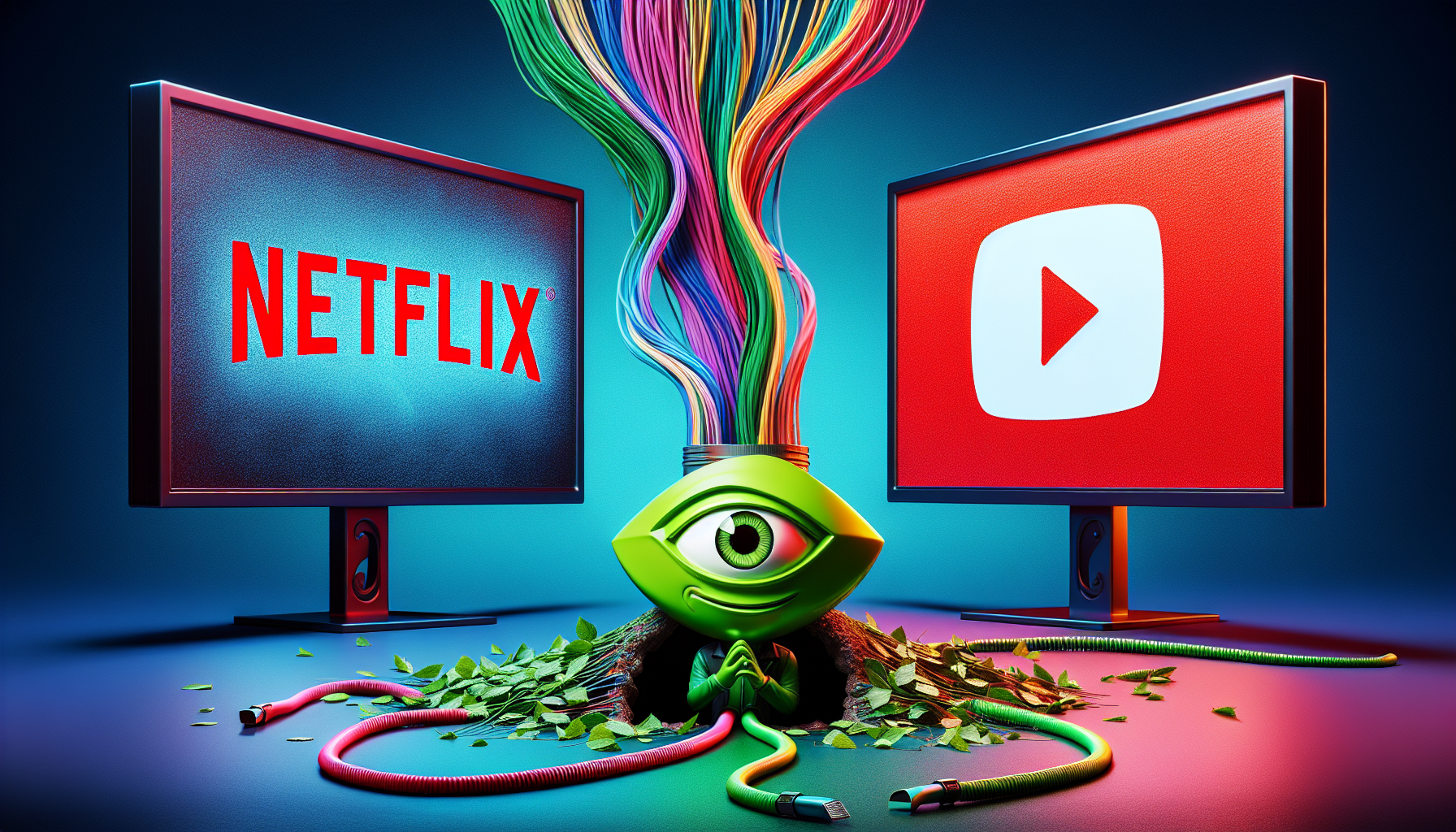
Recent reports have emerged suggesting that Nvidia has once again been caught scraping data from Netflix and YouTube to train its AI models. This revelation has sparked a mix of concern and debate within the tech community, as well as among privacy advocates and content creators.
Nvidia, renowned for its graphics processing units (GPUs) and artificial intelligence (AI) technologies, is no stranger to controversy when it comes to data acquisition methods. This incident has reignited discussions on the ethics of using content from streaming platforms without explicit permission.
Background on Nvidia's Data Practices
Nvidia's journey in the AI sector has been marked by significant advancements and contributions. Yet, with great power comes great scrutiny. Previous allegations have indicated that Nvidia has employed data scraping techniques to gather vast amounts of information across the internet.
Data scraping involves extracting large sets of information from websites, often without the knowledge or consent of the site owners. While this method is not illegal per se, it raises ethical questions, especially concerning user privacy and intellectual property rights.
The current allegations suggest that Nvidia has systematically harvested content from Netflix and YouTube, two of the largest video streaming platforms globally. This content is speculated to be used for training AI models, potentially to enhance recommendations, improve video rendering, or refine other AI-driven features.
The Ethical Dilemma
The practice of scraping data from platforms such as Netflix and YouTube brings forward an ethical conundrum. On one hand, the data collected can significantly improve AI capabilities, leading to innovations that benefit society at large. On the other hand, it poses threats to privacy and copyright laws.
Content creators on platforms like YouTube rely on intellectual property protections to maintain control over their work. Unauthorized usage of this content could infringe on their rights and deny them potential revenue opportunities. Similarly, for streaming giants like Netflix, unauthorized scraping can compromise user data security and violate terms of service agreements.
This dilemma underscores the need for clear guidelines and regulations governing data usage, especially in the context of AI development. As AI technologies become more pervasive, the importance of addressing these ethical issues becomes increasingly paramount.
Technical Perspectives on Data Scraping
From a technical standpoint, data scraping can offer substantial insights and immense value, particularly for training sophisticated AI models. The sheer volume of content available on platforms like Netflix and YouTube provides a rich dataset for AI engines to learn from.
However, extracting high-quality data from these platforms is no small feat. It requires advanced algorithms capable of navigating various security measures and anti-scraping technologies that Netflix and YouTube implement to protect their content.
Engineers involved in these processes must balance the need for comprehensive data collection against the risks of being detected and potentially banned by these platforms. This cat-and-mouse game between scrapers and platform security systems often leads to innovative but controversial scraping techniques.
Legal Implications
Scraping data from websites without permission can lead to serious legal repercussions. Both Netflix and YouTube have strict policies against unauthorized data extraction, and violating these terms can result in lawsuits and hefty fines.
Previous cases involving unauthorized data scraping have seen companies being sued for breach of contract, violation of the Computer Fraud and Abuse Act (CFAA), and infringing on intellectual property rights. If Nvidia is found guilty of such practices, it could face significant legal challenges and damage to its reputation.
Legal experts emphasize the importance of obtaining clear consent and adhering to platform-specific guidelines when collecting data. Companies must navigate these legal landscapes carefully to avoid crossing the line between innovation and infringement.
Industry Reactions
The tech industry's reaction to these reports has been mixed. Some argue that data scraping, while controversial, is a necessary evil in the pursuit of technological advancement. They point out that many AI breakthroughs would not be possible without access to extensive datasets.
Others, however, call for stricter regulations and more transparent practices. They advocate for measures that protect content creators and platform owners while still allowing for innovation. This group believes that collaboration between AI developers and content platforms could lead to mutually beneficial solutions.
The ongoing debate highlights the complex interplay between technological progress, ethical considerations, and regulatory frameworks. As AI continues to evolve, finding a balance that satisfies all stakeholders will remain a challenging yet crucial endeavor.
Nvidia's Response
In response to these allegations, Nvidia has issued statements emphasizing its commitment to ethical AI development. The company claims that it adheres to legal standards and prioritizes user privacy and data protection in its operations.
Nvidia has also expressed its willingness to work with content platforms to address any concerns and ensure that its data practices align with industry standards. This cooperative approach aims to mitigate the backlash and foster better relationships with content providers.
However, until concrete actions are taken and transparency is increased, skepticism will likely persist. Observers will closely watch Nvidia's next steps and evaluate whether they truly uphold the ethical standards they profess.
As the tech landscape continues to evolve, incidents like this serve as crucial reminders of the responsibilities that come with technological power. Nvidia's case underscores the importance of ethical considerations and the need for transparent, collaborative approaches to data usage in AI development.
While the benefits of AI are undeniable, the methods used to achieve these advancements must be scrutinized and regulated to ensure they align with societal values and legal norms. Only through such vigilance can the promise of AI be fully realized without compromising the rights and privacy of individuals and creators.
